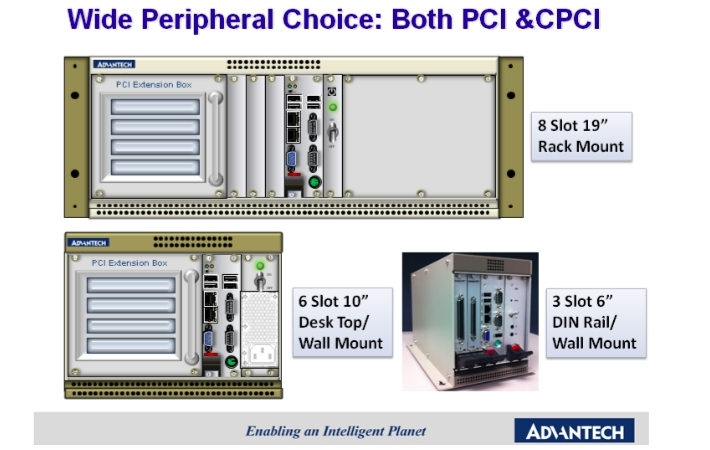
Published on 05/29/2017 | Technology
Automation specialists have known for some time that the hardware platform of choice for many industries is an industrial PC or IPC. Designers choose IPCs to integrate control, sensing, and I/O requirements because they can access the latest PC technologies, but in a package far more suitable for challenging environments and severe duty. The alternatives are to use costly custom-developed hardware, to compromise on capabilities, or to cobble together assorted components into a less than ideal solution.
While custom solutions have their place and can be tailor-made for an application, IPCs represent a far more powerful and cost effective solution. Yet even “traditional” IPCs may not offer all the peripherals needed for a particular applications. The question becomes, how can the next generation of IPCs be enhanced to better meet industry’s needs? What technologies will propel IPCs to the next level of effectiveness?
Manufacturers are responding to the challenge by incorporating CompactPCI technology into IPC platforms. CompactPCI is a well-established industrial computer parallel bus interconnect standard that has been in existence for over 10 years, and has progressively evolved while maintaining backwards/downward compatibility.
Standardization is specified by the PCI Industrial Computer Manufacturers Group (PICMG) which is a consortium of over 200 companies. It’s not unusual for suppliers to abbreviate CompactPCI as “CPCI” or “cPCI”, but these abbreviations are
not officially endorsed by PICMG. However, for convenience this paper will use the abbreviation “cPCI”. cPCI technology incorporates a passive connectorized backplane, with PCI signaling and protocols. The combination of tough hardware components with a well-known PC-world protocol results in a very effective product well-suited to the most demanding automation applications.
However, there is a price to access the benefits of cPCI. In past years it was not unusual for cPCI products to cost up to 400% more than similarly equipped standard IPCs. However, developments in the market mean that today it is possible to find cPCI IPCs at only a 20% price premium over traditional IPCs. At this small price adder, the benefits or cPCI far outweigh the additional costs (Table 1); making IPCs based on cPCI a compelling choice.
The next generation of IPCs is available today. This White Paper will examine the technology powering these new IPCs and why cPCI IPCs have arrived as the best option for many of the most demanding automation applications.
You can find and download the full report on Advantech here.